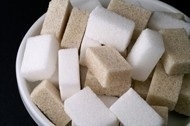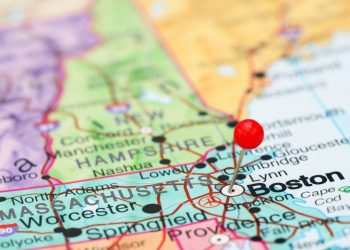 (MCT)—As we wind down National Nutrition Month, this question from a reader deserves attention:
(MCT)—As we wind down National Nutrition Month, this question from a reader deserves attention:
“Please help me. My husband and I are trying to do a “no-sugar” (diet) but we are confused. Everything we eat has sugar in it. Is it OK to eat natural sugar when we are trying to do no sugar? Like the plain Greek yogurt has sugar, so do we NOT eat it or is this OK? And we eat the Ezekiel bread which also has sugar. Is this OK? It seems like everything has sugar. When they mean no sugar are they saying no added sugar or refined sugar or just stop eating yogurts and fruit? Very confusing. Thank you. — Rubie G.
Dear Rubie,
Very confusing indeed.
Sugar is the energy plants produce from being exposed to the sun. So “natural” sugar usually refers to sugar as it comes directly from nature. For example, sucrose (a two-part sugar made of one part glucose and one part fructose) is found naturally in sugar beets and sugar cane and other fruits, vegetables and grains. Fructose is the primary sugar in fruit, honey and agave.
Lactose is the natural sugar in milk and yogurt. (Yes, I know cows are not plants. Cows eat plants, however, and produce milk which contains lactose, or milk sugar.)
Is it OK to eat natural sugars? Unless you have a medical condition that excludes any of these foods, the sugars derived from fruit, vegetables, grains, milk, and yogurt provide the main energy source for your brain, nerves and muscles. And these sugars come conveniently packaged with an array of vitamins, minerals and other life-sustaining nutrients.
Sugar derived from fruit, vegetables and grains can be also be refined into crystals and other forms for us to conveniently use in cooking, baking or to sweeten our coffee or tea. These are collectively known as “added sugars.” Sucrose (what we call “table sugar”), molasses, maple and corn syrups are examples of added sugars.
Sugar has many redeeming values. It gives flavor to food (babies get their first taste of sugar from mom’s milk). Sugar feeds yeast which helps bread rise. It holds moisture, gives tenderness and helps brown baked goods. Not surprising, then, that Ezekiel bread contains some sugar added to the recipe.
Food labels are confusing, as you have discovered. All sugars in a food—those that occur naturally and those that are added—are combined in the “Sugar” category on the food label. So the sugar content of raisin bran cereal, for example, will reflect the raisins as well as any added sugar or honey.
All this said, many of us eat too much sugar, which can make us gain weight and harm our health. In fact, the latest Dietary Guidelines for Americans (2010) call us to reduce our intake of foods which contain added sugars. You can do that by cutting back on sugar-sweetened beverages, desserts and other sources of added sugar.
As you can see, there is a big difference between “no sugar” and “low sugar.” Nutrition experts recommend most of us follow the “low sugar” approach for best health.
Barbara Quinn is a registered dietitian and certified diabetes educator at the Community Hospital of the Monterey Peninsula.
©2012 The Monterey County Herald
Distributed by MCT Information Services










